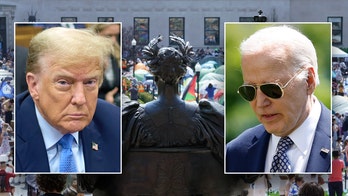WikiLeaks founder Julian Assange has been given the green light to appeal his extradition to the US on espionage charges, after a UK court ruled that American assurances on his First Amendment rights were inadequate.

WikiLeaks founder Julian Assange has won a significant victory in his extradition battle, as a British court ruled that he can appeal on the grounds that the US government's assurances on his First Amendment rights are "blatantly inadequate."
The High Court judges ruled that Assange can appeal on two grounds related to the First Amendment, which protects freedom of speech and press in the US. However, the court accepted the US government's assurances that Assange would not face the death penalty.

The US government has charged Assange with 17 counts under the Espionage Act for allegedly receiving, possessing, and communicating classified information to the public, as well as one charge of conspiracy to commit computer intrusion. If extradited from London, Assange could face up to 175 years in an American maximum security prison if convicted.
Assange's lawyers successfully argued that the US government's assurances that he would be entitled to the same free speech protections as American citizens in a US courtroom were "blatantly inadequate."

The judges said that if Assange was denied a First Amendment defense, his extradition could be incompatible with the European Convention on Human Rights, which also provides free speech and media protection. The judges further stated that Assange could be treated unfairly because of his nationality if he cannot rely on the First Amendment because he is not a US citizen.
In March, when the British court asked the US to provide assurances, it rejected six of Assange's nine appeals, including allegations of a political prosecution and concerns about an alleged CIA plot under the Trump administration to kidnap or kill Assange while he was at the Ecuadorian Embassy in London.

The Obama administration in 2013 decided not to indict Assange over WikiLeaks' 2010 publication of classified cables because it would have had to also indict journalists from major news outlets who published the same materials.
President Obama also commuted Manning's 35-year sentence for violations of the Espionage Act and other offenses to seven years in January 2017, and Manning, who had been imprisoned since 2010, was released later that year.
No publisher had been charged under the Espionage Act until Assange, and many press freedom groups have said his prosecution sets a dangerous precedent intended to criminalize journalism.
"This decision marks an important milestone in Julian Assange's legal case, opening up a vital new path to prevent extradition," Reporters Without Borders Director of Campaigns Rebecca Vincent said in a statement. "The two grounds for appeal that have been granted mean that, for the first time in three years, the U.K. courts will consider the issues at the very heart of this case, related to freedom of expression and the First Amendment. We urge the U.K. to act in the interest of journalism and press freedom and refuse to further enable this dangerous prosecution."
The Associated Press contributed to this report.










